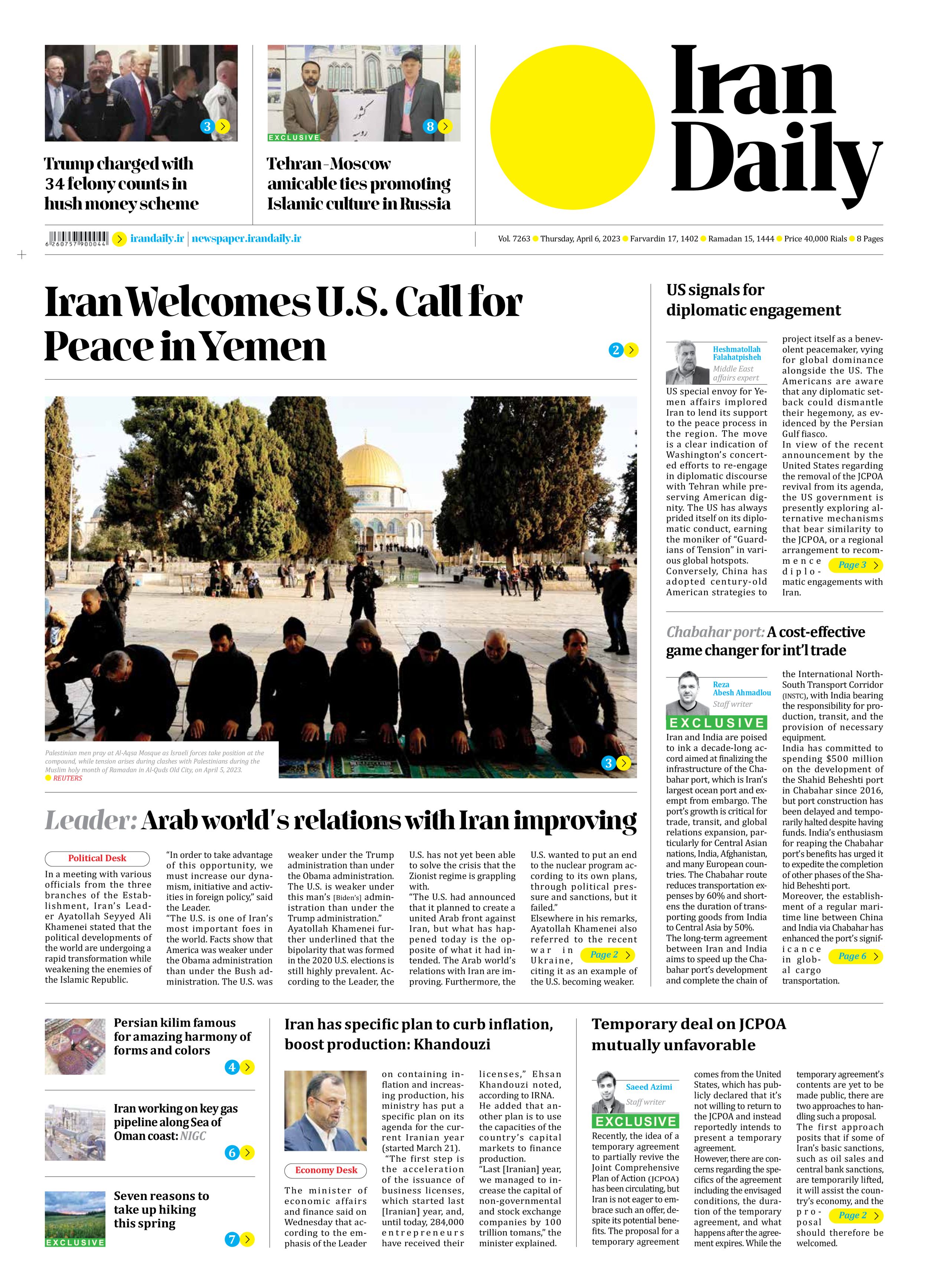
Temporary deal on JCPOA mutually unfavorable
Saeed Azimi
Staff writer
Recently, the idea of a temporary agreement to partially revive the Joint Comprehensive Plan of Action (JCPOA) has been circulating, but Iran is not eager to embrace such an offer, despite its potential benefits. The proposal for a temporary agreement comes from the United States, which has publicly declared that it’s not willing to return to the JCPOA and instead reportedly intends to present a temporary agreement.
However, there are concerns regarding the specifics of the agreement including the envisaged conditions, the duration of the temporary agreement, and what happens after the agreement expires. While the temporary agreement’s contents are yet to be made public, there are two approaches to handling such a proposal.
The first approach posits that if some of Iran’s basic sanctions, such as oil sales and central bank sanctions, are temporarily lifted, it will assist the country’s economy, and the proposal should therefore be welcomed.
But the second approach argues that a comprehensive and sustainable agreement should be reached to give investors a long-term and forward-looking outlook, rather than ask them to rely on unstable and temporary conditions.
Iran’s reluctance to accept a temporary agreement is understandable and rooted in the fact that it may not have long-term benefits for the country’s economy. Although a temporary agreement may help alleviate some of the economic pressure caused by sanctions, it is unlikely to attract foreign investment and long-term economic cooperation programs with foreign countries. Investors require stability and predictability, which a temporary agreement cannot provide. It can only serve as a pain reliever but cannot solve the fundamental problem and fix Iran’s economy.
Moreover, Iran has made it clear that it will only return to compliance with the JCPOA if all sanctions are lifted, which a temporary agreement cannot achieve.
Although many believe that the current conditions have pushed Iran and the West toward the formula of “no agreement, no crisis”, the continuation of the situation raises concerns for both sides. That’s because the two issues of Iran’s developing peaceful nuclear program and the economic pressure caused by the imposition of unilateral sanctions on the Islamic Republic would remain unattended and a thorn in the sides of the West and Tehran, respectively. Therefore, it is essential for Iran and the US to engage in face-to-face talks to reach a stable and long-term agreement on the revival of the JCPOA. Direct negotiations could prove to be a logical and effective way for assessing the JCPOA’s conditions and facilitating its return.
Some may argue that conducting negotiations is a risky tool in foreign policy, but it is better for Iran to sit down for direct talks for its national interests. There should be no fear of negotiation, as the worst-case scenario in diplomatic negotiations is that the negotiators do not reach a result.
The reality is that the US and Europe are not as keen as they once were to finalize the JCPOA’s revival due to Iran’s alleged military cooperation with Russia over the war in Ukraine, which Tehran denies, as well as its handling of last year’s street protests which the West claims was harsh. Therefore, direct negotiations may be a practical option to break the impasse, resolve the issue of sanctions, and promote economic cooperation with foreign countries.







